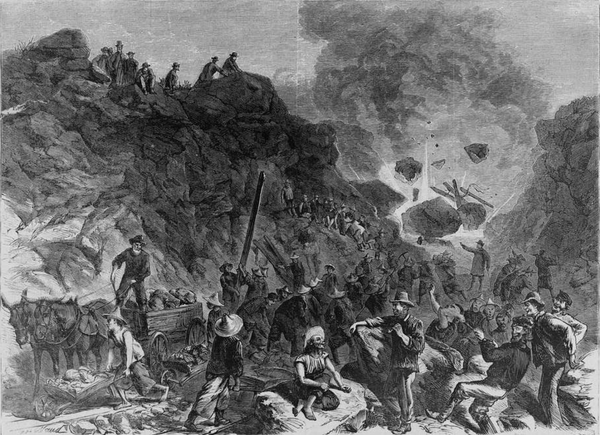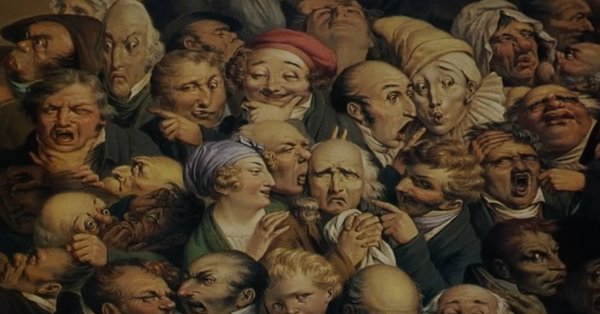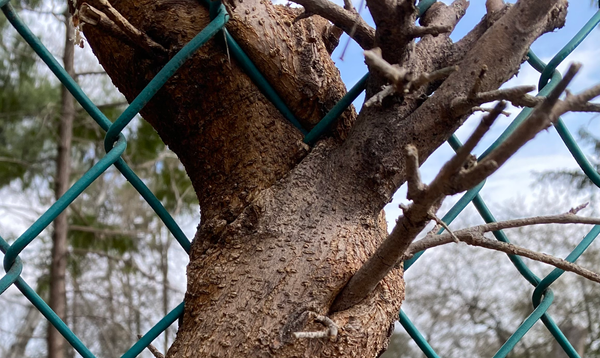Loyalty Program

The boy squeezes his eyes closed. He opens them again, blinking, as if to wake himself up. Same popcorn ceiling, same wood-paneled walls. Same musty odor laced with perfume. The room is too cold and too hot.
"Brothers and sisters, before I go ahead," the judge drawls, shuffling a stack of papers, "I'll make one comment."
The bailiff looks past the boy's head at a clock flanked by two flags. One is the Lone Star. In the other is a black circle on bright yellow. The clock reads 10:10 AM.
"A degree of clemency appears to be merited on account of the Loyalty Program's, ah, sparse results in this particular case," he continues, peering at the boy briefly through gold-rimmed glasses. A man in the front row of the audience coughs. A woman in the second row straightens her hair.
The bailiff has always been put off by the audience's gaze at this part; hundreds of dogs watching their trainer rummage in his treat bag. This, he notes to himself, is the worst it's been so far.
The judge pushes his glasses up on his nose. "If I've understood this notion of 'drafts' correctly, then one issue remains. A young man, you see," he says, removing his glasses and brandishing them at the audience, "ought to be learning to say things with his chest. That's called character, my brothers and sisters. If I've learned one thing sitting on this bench, it's that you instill character young, or you do not instill it at all." He puts his glasses back on, picks up some papers, and begins to straighten them.
The bailiff, who’d been people-watching audience members, brings his attention back to the judge. The energy is way off. Must've skipped breakfast. From the tone, he can tell the kid's looking at five, ten, maybe fifteen years at the work camp; wild, considering this kid's a good ol' boy. A running back at the state school down the road. His paper trail is squeaky-clean compared to the others like him, who always had something – pinko sympathies in DMs with blue-haired love interests, texts in group chats about inter-frat pranks that got suspiciously lewd – and the judge would give them a year at the camps, two at most. The hammer coming down on this kid for a couple drafts was reserved for the ones with militant commie TikTok accounts, druggies who didn't use code words, girls with receipts for out-of-state abortions, minorities who talked back.
A plea tumbles out of the boy. "Sir, listen, anyone in town will tell you I've always—"
"Son," the judge says, his voice a whisper, "you will speak when spoken to." There's a long silence. "I will be using this opportunity to remind us of the stakes of these proceedings, my brothers and sisters," the judge continues flatly. "I hereby declare the defendant guilty of the crime of sedition," he says, picking up his gavel, "and sentence him to the public judgment." He bangs the gavel once. "Next."
A few seconds of nothing but fluorescent lights buzzing. Then shuffling in seats, whispers in the crowd. Then a groan issues from the boy, whose forehead lands on the table before him with a thud. His groan turns to sobs. The bailiff has seen his kind enter the stadium. The crowd assumes, because it's one of them, that they must have done something particularly bad, and act accordingly.
"Next, I said," the judge barks.
The bailiff stops staring at the boy and goes to him.





